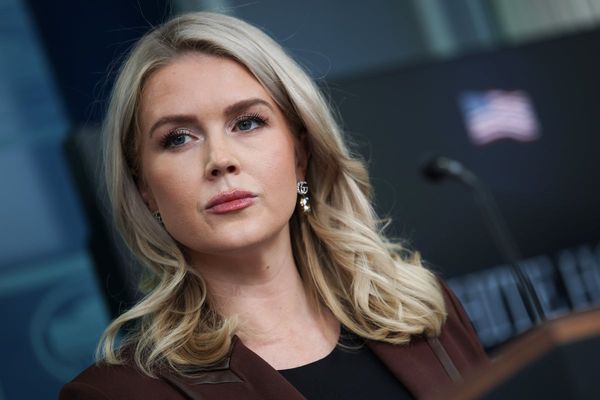
Pain is a many-faced beast. Sometimes it roars and sometimes it purrs so quietly you can barely hear it. In spring 2020, it roared. At the height of Covid, I suffered a stroke. I knew pain, but this was new: the struggle to speak, words coming out in the wrong order or not at all. The vertigo. Constantly dropping cups to the point I gave up and started exclusively drinking from plastic beakers taken from the theatres I used to work at.
My body failed me in ways that didn’t fit all my preconceived notions of disability. As an activist raised with the social model that holds that we are disabled by societal barriers and not by our own bodies, was I even disabled – more disabled – by this new but temporary state of affairs? Strokes can be disabling, but I was young and I healed over time.

For me, pain can be both physical and mental, or both at once. At the time of my stroke, I was also in pain grieving the death of my mother, who was my last surviving family member.
My mother was disabled and I feel very fortunate to have been raised with an awareness of disability and disability rights. But coping with the loss of basically my entire family as the world shut down was the most challenging thing I’ll ever do, and having to navigate my own health needs without family support put a lot of pressure on my other relationships.
Such mental distress can worsen physical pain and, even as a writer, I don’t yet possess the skill to put into words the unique and complex ways that that combination of pain affected me.
Pain is the bridge that defies categorisation. I’ve always been sporty, and I enjoy challenging myself – as a former competitive swimmer, as a hobbyist mountain climber and diver. Yet sometimes I can’t walk to the bathroom because of my chronic pain condition, Ehlers-Danlos syndrome, and sometimes I can climb a mountain. But most people can’t understand that, whether that be friends, family or even doctors.
As a woman, I hid my pain for years, frustrated with medical misogyny and trying to make doctors, loved ones and my work recognise the fluctuating nature of chronic pain. If my doctors don’t understand female pain, why would anyone else?
Fortunately, I found support through a network of friends. I met them (Hannah, Jess, Mike, Khush and Karran – they’re my ride or dies for life) on the Graeae disabled playwright programme and they became lifesavers by giving me a group I can talk to about anything, without fear or shame or the need to explain everything.
I needed that as the gender pain gap is very real: women’s experience of physical pain is consistently undermined, underestimated, passed off as hysteria/ nerves/ stress/ anxiety/ attention seeking.
Women are less likely to be given pain relief in hospital and are given less of it when they are. A woman is 50% more likely than a man to receive the wrong initial diagnosis for a heart attack and less likely to be prescribed medications to help prevent a second heart attack. While female conditions such as endometriosis often go undiagnosed for years after the first onset of symptoms.
Within my own healing process, the question of how and when to return to work arose. Having a stroke during Covid might not be the actual worst timing in the world (maybe during sex, or while deep sea diving, or on your wedding day might be worse), but it’s pretty up there. With all the theatres closed and an entire industry struggling to stay alive, I wasn’t sure if I even had a career to return to.

So I went back to my old day job working at a museum, and discovered a whole new world. I love playwriting, I love the voice that it’s given me, and I’m aware that I’m hugely privileged to be able to do it as my full-time job and earn a living at it. But being reduced to “the female playwright”, “the disabled playwright”, “the queer playwright”, “the Jewish playwright”, is exhausting – how do I choose which one to be, and why can’t I just be a writer and write about anything and everything?
I now work at the museum one or two Saturdays a month, and the boost to my mental health has been huge. It’s the one place where instead of feeling like the Female One, the Disabled One, the Jewish One, the Queer One, I just feel like Naomi. There’s a profound liberation in that.
At a recent meeting (coincidentally a few days after the Manchester theatre “mini riot”, which launched an industry-wide debate about audience etiquette v staff safeguarding), my manager said: “Your safety is much more important than starting an event on time.” That felt huge. I don’t know why my museum prioritises staff wellbeing and theatre doesn’t (money? Culture?), but I feel safe asking for help there, because I know I won’t be pressured or gaslighted into ignoring my pain in order to get the job done. I don’t feel that kind of freedom in theatre.
I don’t need anything special to be able to ask my museum bosses or colleagues for help, or to say that I’m not feeling up to doing a certain thing. I don’t need to disclose a diagnosis, I don’t need to use special words. I can just ask.
The Gender Pain Gap is a phenomenon in which women’s pain is taken less seriously, and more frequently misdiagnosed and undertreated compared with men’s; with more than one in two women believing that their pain is dismissed or ignored because of their gender. If you want to learn more about the Gender Pain Gap and read the full Gender Pain Gap Index Report commissioned by Nurofen, visit nurofen.co.uk/see-my-pain
Nurofen 200mg Tablet for short-term, mild to moderate pain. Contains ibuprofen. Always read the label. RKT-M-32563.







